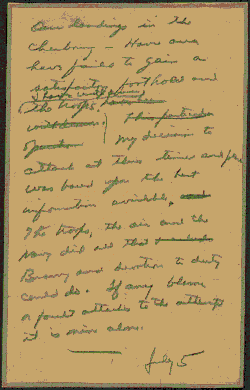We live in an anniversary culture, one in which the media never stops telling us Why This Day Is Special. I am writing this column on June 7th—did you know this was the day Sony introduced the Betamax videocassette recorder for sale to the public, or that the inaugural Cricket World Cup began in England, both signal events taking place in 1975?
Yeah, neither did I.
Frankly, I can do without anniversary culture altogether. For thousands of years, we humans have taken note of important events: birthdays, religious holidays, days of liberation and enslavement. They gave shape to the seasons, to the year, and to our lives as a whole. What we lacked was an omnipresent electronic media constantly waving anniversaries in our faces until they became a blur, with the weighty and the trivial receiving equal billing.
Recently, however, we experienced a “twofer” that I think is worth noting. On June 4 we celebrated the 69th anniversary of the Battle of Midway, and on June 6th, of course, the 67th anniversary of the D-Day landings in Normandy. Two battles, two great victories for U.S. and Allied arms. The vast encounter in the Pacific waters surrounding Midway Island broke the back of the Japanese carrier fleet, and indeed, virtually the first words I learned in a foreign language as a kid were Kaga, Akagi, Soryu, and Hiryu. D-Day cracked open the so-called Atlantic Wall and created a firm bridgehead in Europe that the Allies would never relinquish. Less than a year later the Third Reich would lie in ruins and Adolf Hitler would be shooting himself in despair.
What struck me the most were the difference between these two victories. Midway happened for a number of reasons: brave U.S. airmen and sailors had something to with it, of course, but there was also an overly complex Japanese operational plan (something that would bedevil the Imperial Japanese Navy for the entire war) and some highly successful U.S. intelligence and counter-intelligence efforts (“AF is out of water,” for you aficionados) But at or near the top of the Midway list was a great deal of luck: Admiral Nagumo’s unfortunate timing in retrieving, refueling, and rearming his attack aircraft, for example, or the presence of a sitting duck U.S. torpedo squadron shot to pieces by Japanese fighters, which gave an opening to those Dauntless dive bombers coming in at higher altitude. Above all, the fact that the Americans even found the Japanese fleet at all was fortunate, the work of a lone U.S. aircraft spotting a lone Japanese destroyer that had separated from the main fleet and was hurrying to catch up. It was an amazing confluence of events.
 D-Day was different. Oh sure, there were nail-biting moments during the landings, especially for the U.S. force at Omaha Beach. The preparatory bombing, supposed to be “the greatest show on earth,” largely failed to materialize, and certainly did little damage to the Wehrmacht formations dug in at Omaha. The Canadians had troubles of their own getting over the seawall at Juno. The airborne drops behind Utah Beach were utterly chaotic and could well have been disastrous, had there been more Germans behind Utah Beach. None of these things, however, came close to turning Operation Overlord into a failure. That note Ike penned the night before, one to be released to the press in case things went wrong, never had to be used, and sits today in a museum. (A digital copy from the National Archives sits at left.)
D-Day was different. Oh sure, there were nail-biting moments during the landings, especially for the U.S. force at Omaha Beach. The preparatory bombing, supposed to be “the greatest show on earth,” largely failed to materialize, and certainly did little damage to the Wehrmacht formations dug in at Omaha. The Canadians had troubles of their own getting over the seawall at Juno. The airborne drops behind Utah Beach were utterly chaotic and could well have been disastrous, had there been more Germans behind Utah Beach. None of these things, however, came close to turning Operation Overlord into a failure. That note Ike penned the night before, one to be released to the press in case things went wrong, never had to be used, and sits today in a museum. (A digital copy from the National Archives sits at left.)
So, happy anniversaries! What happened between 1942 and 1944 was this: the Allies went from being lucky to being good. And contrary to the old saying, I’d rather be good. Ask the Japanese at Midway what happens when your luck runs out.
For the latest in military history from World War II‘s sister publications visit HistoryNet.com.




